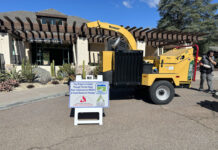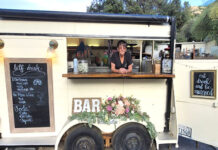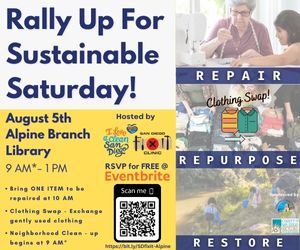By: Susan Hogoboom
For The Alpine Sun
With colder weather approaching, different sources of heating will be in use out here in the backcountry.
Jason McBroom, the Fire Marshal for the Alpine Protection District, and Richard Edwords of Kamps Propane provided some general safety information for our readers who live in apartment complexes.
– There are no wood-burning fires allowed outside apartment complexes, with the exception of permitted outside fire pits or permitted outside fireplaces.
By: Susan Hogoboom
For The Alpine Sun
With colder weather approaching, different sources of heating will be in use out here in the backcountry.
Jason McBroom, the Fire Marshal for the Alpine Protection District, and Richard Edwords of Kamps Propane provided some general safety information for our readers who live in apartment complexes.
– There are no wood-burning fires allowed outside apartment complexes, with the exception of permitted outside fire pits or permitted outside fireplaces.
– No open heaters powered by propane are allowed outdoors in apartment complexes.
– No storage of combustible materials, including firewood, within 10 feet of a building or structure is allowed at apartment complexes and, generally, at businesses.
– Follow manufacturer instructions and check propane appliances regularly.
– Install carbon monoxide and smoke detectors and change batteries. The United States Consumer Product Safety Commission recommends changing the batteries when time changes. Daylight savings and time will end on Nov. 6 at 2 a.m.
– Change out gas flex lines when you buy a new appliance, especially if the appliance is over 10 years old.
– Store all portable propane cylinders outdoors, not in an enclosed area such as a basement, garage or shed.
– Do not use barbecues to heat your house.
– Make sure your water heater is rodent-free.
– Have your propane tanks regularly inspected.
– Keep your propane tank free of corrosion and rust.
– Keep your iron and steel gas lines free of corrosion.
– Turn off the service valve of your propane barbecues after you finish using it.
– Do not use gasoline for cleaning.
– Keep gas lines free of leaks. Do not use matches or lighters to test for propane leaks.
– A 30-foot clearance around a propane tank is important.
Keep both charcoal and propane barbecues 10 feet away from combustible material per the California fire code. Firewood should be properly cut and dried.
Single-family homes and duplexes that are not a part of an apartment complex are excluded from this, along with buildings; balconies and decks that are controlled by an automatic sprinkler system. Liquified petroleum-fueled cooking devices, which include propane, having a liquid petroleum gas container with a water capacity not greater than 2.15 pounds or a 1-pound liquid petroleum capacity are also excluded.
You may store your propane tank grill with a capacity of 1 pounds on your deck after the fuel tank has been disconnected, but the disconnected fuel tank must be stored 10 feet away from combustible construction or from any enclosed building structure. It cannot be stored inside.













Thanks for mentioning how you should store portable propane outside. It is important to understand that doing some research can help you know how to care for your propane. I can see how checking with a professional can help you get the propane services you need.